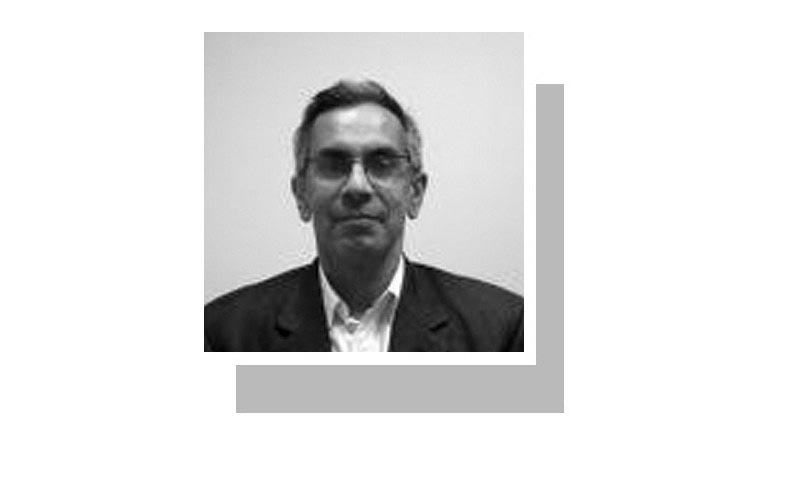
THERE are multiple levels at which individuals who constitute the electorate will decide who to vote for. In Pakistan’s eleventh general election in a couple of days, the metanarrative points to a choice between a vote-ko-izzat-do (respect the vote) slogan that underlies a violent injustice done to the electorate’s civic and political rights and a party with some illusionary notion of a ‘naya Pakistan’. The latter party promises governance reforms, having made multiple compromises with the very old Pakistan, where elderly and established veteran electables have switched alliances in the hope of supporting what they expect to be the winning party. At least on this count, there is no difference between naya and old Pakistan.
Then there is the third, formerly great progressive party, led by a younger leader trying to revive the notion of an older social-justice social contract within the paradigm of an advanced neoliberalism, the contradictions between the two quite lost on him and his party. Of course, old and recently mainstreamed Islamist parties continue to raise their demands for an ‘Islamic’ Pakistan, where different formulations and interpretations and shades of Sharia dominate their political programme. Broad formulations of ethnic politics, which were formidable, particularly in Sindh and noticeably in Karachi, while still present, have now been fractured and compromised under different political banners.
Local, real-life issues seem to trump broader issues, supposedly related to principles or ideology.
In most countries, political parties have a ‘base’ of voters who usually stay loyal to their party. Of course, the base changes as and when the party changes, say when the spouse of a popular leader replaces her, giving a completely new meaning to the identity of her former party. Some committed and so-called diehard supporters stay with the party, but many are disenchanted as they realise that the old party no longer exists. Then, with a new kid on the electoral block rallying Pakistan’s youth with a party founded 22 years ago, many first-time voters are willing to support this new politics, often saying that he should be ‘given a chance’. Over the decades, we have moved from a sort of two-party system, and now with one of them revitalised, to more of a three-way contest, with local, provincial and regional parties and individuals completing the vote bank.
If this had been a very free, fair and transparent election, perhaps many of the base supporters would have voted for their preferred candidates and parties, with a fair indication of what the results would have looked like, as every local and international poll had indicated. Yet, now as the Human Rights Commission of Pakistan has told us, the coming general elections will be the “dirtiest, most micromanaged ... in the country’s history”. They “have serious doubts that elections will be free and fair”, and see “blatant, aggressive and unabashed attempts to manipulate the outcome of the upcoming elections”, suggesting that who people vote for will be compromised by the limited choices they have in front of them. This attempt to break the hold of the base raises further questions about who people vote for now.
Given the similarities in most parties, so-called ideology and principle will probably play a minor part in how people vote, and, hence, what counters the metanarrative is that voters will probably vote for candidates who address and have delivered on local issues. Every TV channel has been showing responses by voters in numerous constituencies about who their preferred candidate would be, and invariably the voter ends up talking about very local issues — water, sanitation, roads — and who has or has not delivered on their promises.
At times, this is the only concern of the voter, not whether a particular leader is in jail, or whether someone already thinks that he is the ‘chosen one’. Local, real-life issues seem to trump broader issues, supposedly related to principle or ideology.
What is surprising is that most voters believe that their National Assembly representative is supposed to provide water in her constituency, rather than hold forth on issues of foreign policy, economics and broader, supposedly ‘national’, matters. There is certainly some truth in the cliché, that ‘all politics is local’, especially in an age where ideology does not differentiate between political parties. Who needs local government when voters expect their formidable MNA to be responsible for clearing their streets?
For a city that has known only ethnic politics for three generations, this is the first time when identity may not be the primary concern in making their choice. This is especially so, when the same ethnic identity is pitted against itself, and when the single dominant party has been made an example of, literally being cut down to size and parcelled out. If ever there is going to be a split vote, this election will demonstrate it in Karachi. Moreover, while much is made of biradaris, political parties are aware of biradari bifurcations and politics, and usually candidates belonging to the same biradari contest against each other. Hence again, either party affiliation — the base — or service delivery at the local level would determine who is voted in.
The consensus now voiced by numerous political parties, human rights groups, citizens and analysts is that considerable pre-poll rigging has already taken place. If before they even get to vote, voters feel that their free and fair choices have been compromised and constrained by the limited options available to them, who and what they vote for might count for very little.
Worse still, one expects that after the elections, active attempts will be made to manufacture a government more suited to the establishment. Whichever way Pakistan’s voters vote, they have already been disenfranchised and an election has been stolen from them. Yet, vote we must, to try to resist and challenge every attempt to undermine democracy.
The writer is a Karachi-based political economist.
Published in Dawn, July 23rd, 2018









































